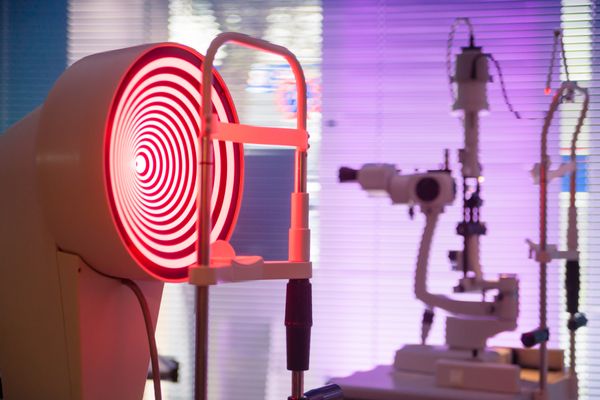Healthcare Digitalisation

It seems like the global coronavirus pandemic is accelerating the digital transformation of almost every industry. Healthcare is one of the sectors that weren't too open to new and innovative technologies. However, the new situation demands more efficient and customer-centric solutions, and that's what new technologies should be solving.
In fact, new reports are showing that the digital health industry is on the rise. VynZ Research expects the market size to reach $510.4 billion by 2025, growing from $111.4 billion in 2019, at a CAGR (Compound Annual Growth Rate) of 29% during the forecast period. The report mentions new technologies such as telemedicine and mHealth as significant contributors to the market growth.
As a consequence of the changes that are going on during 2020, 2021 will be a big digital transformation year for all sectors, including healthcare. Technologies like AI and blockchain enhance the digital transformation in healthcare, disrupting the way we use medical services.
Here are the trends we expect are going to thrive in 2021:
Virtual reality & augmented reality
Using cameras, sensors, and screens to relay artificial information to the physical world means using augmented reality. By accenting details and rendering 3D objects, it enhances the users' experience of the real world. At the same time, users witness a complete change in their vision in augmented reality through multiple scenes, similar to a video game.
Although a few years ago, watching video games to treat a health-related problem was unthinkable, today, this is one of the most emerging trends in modern healthcare. The ways VR and AR can be used in healthcare are transforming patient treatment.
For example, VR is revolutionizing the way new surgeons get training. With a VR camera, surgeons can get a close look at a live surgery regardless of their location. Next, as VR can create an artificial environment for patients, doctors can identify memory loss and problems with decision-making, accelerating the treatment of brain injuries.
VR and AR can also help reduce depression, address post-traumatic stress disorder, identify Alzheimer's disease, and detect schizophrenia. VR-based treatments can also reduce height phobia by over 70%. What is more, scientists from Cambridge's Cancer Research Institute have built a model that combines VR and 3D to study cancer better.
Artificial Intelligence
AI is conquering a number of industries, and enhancing the digital transformation in healthcare is no exception. A whole new field of advanced health technology has been developed with the creation of AI-based machines that can interpret data and provide valuable insights in a way comparable to what the human brain can do.
To detect patterns, AI analyzes critical knowledge and leverages machine learning to forecast future patient outcomes. Machine learning algorithms train computers to understand data and leverage it to make smart decisions, with little or no human interference.
For example, AI can significantly improve the intensity and precision of the patient diagnosis process. Data processing can also help doctors detect changes in patients' state and identify an efficient solution much faster. Healthcare chatbots, AI-powered robots that assist patients, and even AI-based drug discovery are only some use cases.
According to a report by Markets and Markets, the global AI in healthcare market is expected to reach 45.2 billion by 2026, growing at a CAGR (Compound Annual Growth Rate) of 44.9% between 2020 and 2026. As healthcare is facing more complex datasets, the need to process them drives the demand for AI.
Wearable medical devices
This trend has been present for the past few years, and it seems like it isn't going anywhere anytime soon. These devices are wearable tech pieces that people wear to collect data about their health condition and fitness activities. Thanks to users' desire to control their health, these devices have become a part of their everyday lives.
Fitness trackers are at the forefront of digital transformation in healthcare, as the most popular wearable health devices. They are equipped with sensors that collect data such as the user's heart rate. Users integrate them with their smartphones to get health and fitness advice. Smartwatches are also very popular, providing a lot of valuable health data.
Wearable medical tech allows doctors to always have an insight into the health condition of high-risk patients, with the possibility of taking real-time action and preventing harmful events. What is more, these devices have the power to provide a personalized healthcare experience.
Blockchain
Blockchain is a distributed digital ledger where information can be stored in a highly-secure way. Blockchain can cut costs, safeguard patient records, and increase the satisfaction of the entire healthcare experience. It can be used for various actions, including the safe encryption of patient records and handling dangerous disease outbreaks.
Blockchain can be beneficial to prevent data breaches, knowing that over 176 million patient data records were exposed to violations between 2009 and 2017. Blockchain's ability to maintain an irreproachable, decentralized, and transparent record of all patient information makes it a precious technology. Moreover, while blockchain is open, it is also confidential, shielding any person's identity with protected codes, which is essential due to health-related information confidentiality.
As blockchain is decentralized, medical staff can have immediate access to patient data, contributing to faster problem identification and personalized service. The technology can also find wide use in research processes that involve vast amounts of data points, like genomics.
Technology is already transforming healthcare, but 2021 will be the year when we'll put into practice everything we learned during the unexpected 2020 state. The smart use of data combined with technology will be crucial for companies that want to survive the crisis.
From identifying future research targets, using predictive analytics in clinical trials to leveraging knowledge to build more effective processes that provide value to key stakeholders, there is a wide variety of new possibilities. As a result, we'll get more personalized healthcare, where patients have more control over their health condition.
To find out how to win at digital transformation in healthcare in 2021, contact our team of experts.
Human. Technology. Together.
next - stories


